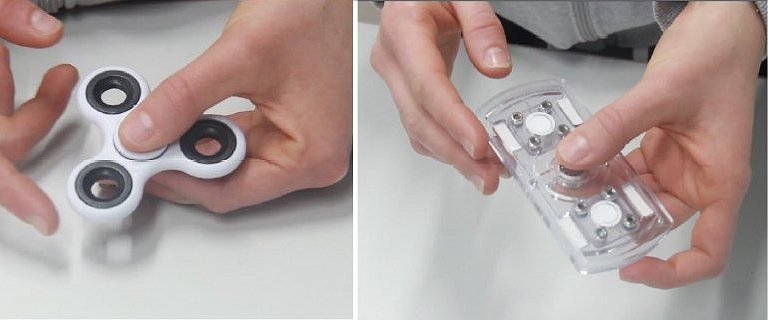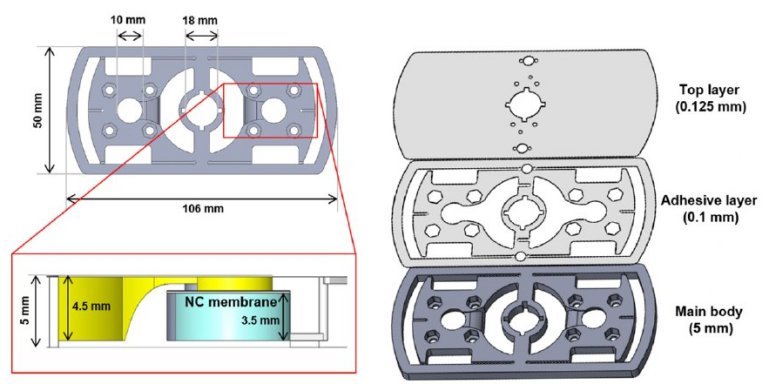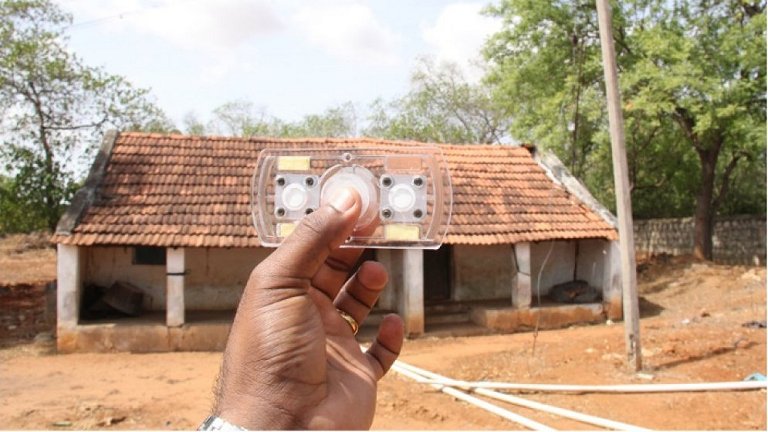TECH

Spinner inspires biochip that makes medical examination on the spot
Medical spinner
The spinner, a toy that came and went like a summer storm, left at least one lasting benefit.
Issac Michael and his colleagues at the Institute of Basic Sciences in South Korea were inspired by the rotating toy to optimize the functioning of a biochip, a microlaboratory that promises things like exams performed on the spot, in the doctor's office, as well as efficiency improvements in virtually all traditional exams.
Spinners are toys whose bearings reduce friction, allowing them to spin quickly for a long time - all it takes is one finger motion to get them moving.
Taking advantage of the centrifugal force derived from this spinning motion, the team developed a technology they call "fluid-assisted separation". This mechanism allows the biochip to work with only one or two manually induced rotations.
The result is surprising: the fluids deposited in the biochip for the examination show an increase in the concentration of pathogens up to 100 times.
The enrichment is so great that the material becomes visible to the naked eye as soon as the device stops rotating - all without the need for time-consuming bacterial cultures, for example.

Manual centrifugation
"Although the centrifugal force serves as the 'motor' of the device, the force is felt more strongly in the external route, since it acts externally outside the center of rotation. The unbalanced impact of the centrifugal force keeps part of the sample in the membrane.
"We used hydrodynamic forces that act vertically to the centrifugal force, filling the filter membrane with liquid before the centrifugation process. This minimized the pressure drop and brought a uniform pressure balance throughout the membrane area. This allowed to maximize the efficiency of the bacterial cell enrichment, minimizing the force required for filtration.

"With this, one or two rotations were sufficient to filter 1 mL of sample, despite the great variation in the speed of rotation between different operators with different manual powers," said Professor Yoon-Kyoung.
The team tested the device in real conditions, carrying out urine tests in Tiruchirappalli, India, to detect urinary tract infections in women. The tests produced 100% accurate results compared to laboratory tests - with the difference that the result came out in 50 minutes, versus seven days needed to do the laboratory analysis.
Authors: Issac Michael, Dongyoung Kim, Oleksandra Gulenko, Sumit Kumar , Saravana Kumar, Jothi Clara, Dong-Yeob Ki, Juhee Park, Hyun Yong Jeong, Taek Soo Kim, Sunghoon Kwon, Yoon-Kyoung Cho

No comments:
Post a Comment